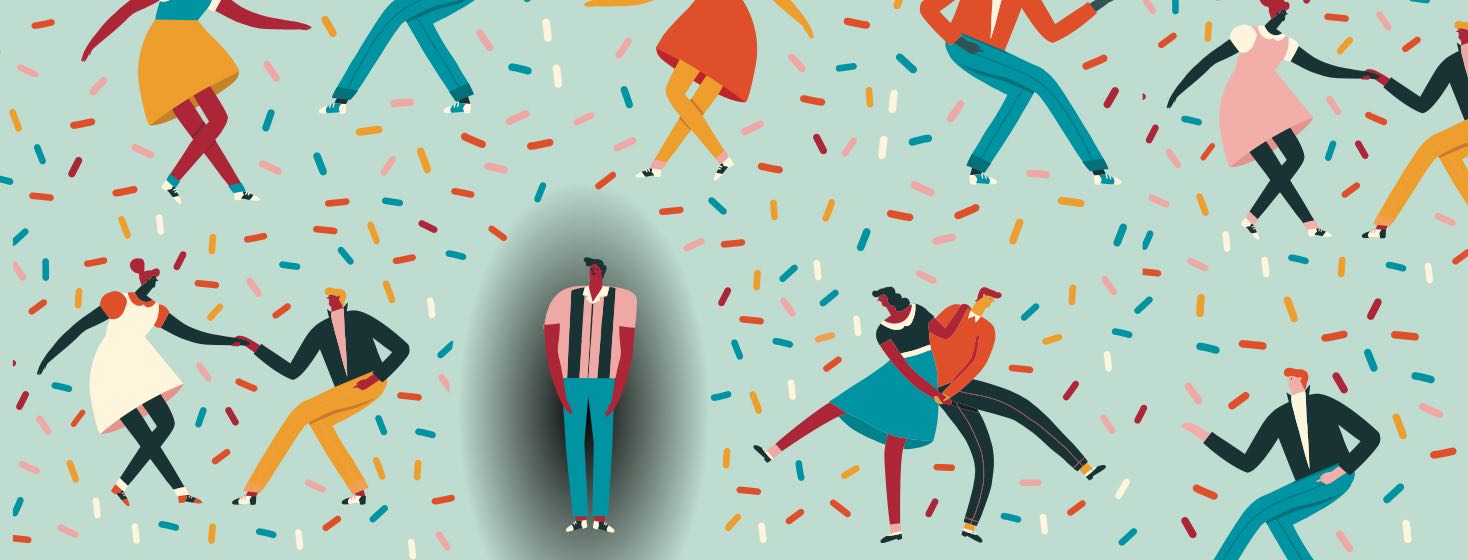Breaking the Bond between IBS and Depression
I have written a few articles over the years about my IBS and depression, and I am proud to say that since I began this journey of advocating for myself and others with invisible illnesses, I continued to gain a better handle over my mental health. Now, that’s not to say I’m completely depression-free; I’d be lying if I said that I still don’t experience depressive episodes every now and then.
Fighting myself to advocate for myself
Let’s be honest: who seriously enjoys living with a debilitating condition that constantly finds ways to hold the sufferer back in life? When I was new to the invisible illness community, I didn’t know how to take my condition seriously enough to even advocate for myself, let alone for others.
I felt so pitiful and miserable simply because I did not want to accept what I was going through, and instead, I fought hard to return to the days of feeling “normal” and “healthy.” Clearly, that act only lasted for so long until my condition started effectively affecting my quality of life and mental health in the worst of ways.
IBS and depression
When I finally came to terms with my IBS, I realized depression was deeply tied to how I felt due to my condition. It seemed to always come along for the ride during and after some of my worst flare ups. Therefore, I had to learn to live with both conditions, which for a newbie is obviously a very hard thing to do. It requires accepting the fact that you also have depression on top of having IBS.
Noticing what I've been missing
When I accepted both of those diseases, I began to notice all of the things they took from me without me being aware at the time. Because of my IBS and depression, I dropped out of college, lost a number of jobs, lost touch with many good friends, and have had deep issues with some family members.
At one point, I lost all hope and any ounce of confidence in myself.
So basically, learning to live with these conditions was similar to learning to find a reason to live every day.
How I overcame depression
It took me a while, a long while, but I realized a lot of my depression wasn’t just coming from IBS, but also from me. A lot of my mental anguish was self-inflicted simply because of my perception on my condition, and life in general.
For instance, I used to compare myself a lot to other people who didn’t suffer from this horrible condition, and because of that I had a hard time keeping my self-esteem high, which eventually lead to a depressive state.
One of the hardest things for me to learn was to stop comparing myself to others, and simply accept my shortcomings by finding new and different ways to do the things I really wanted. For me, that was literally a key moment and realization that helped me slowly get out of my depressive-funk and start taking control over my life.
I could go down a list of how I was self-inflicting my own depression in many other ways, but I feel the most important things to point out are the fact that I took accountability for my self-inflicted depression and realized how I needed to change my perception of the limitations placed upon my life.
Making the decision to address my mental health and IBS
When I finally decided to do things my way, my attitude changed about my condition and dealing with depression became a lot easier overtime. I’ve used this once in an article and I’ll use it again, since it is one of my favorite quotes, “Change your mindset. Change your life.” For me, that’s the key to getting over many obstacles.
Read more in our collection: IBS and Mental Health: The Vicious Cycle

Join the conversation